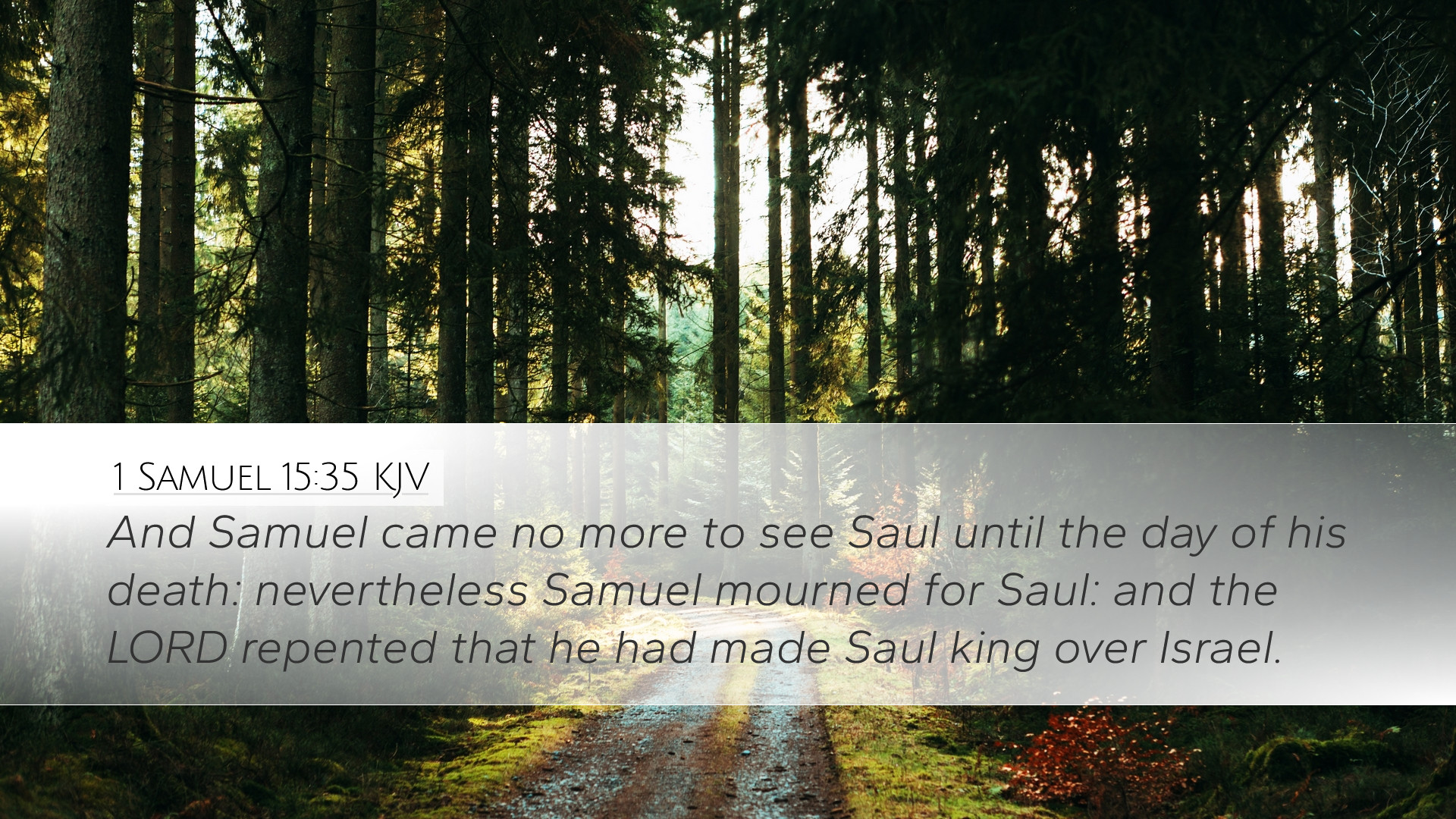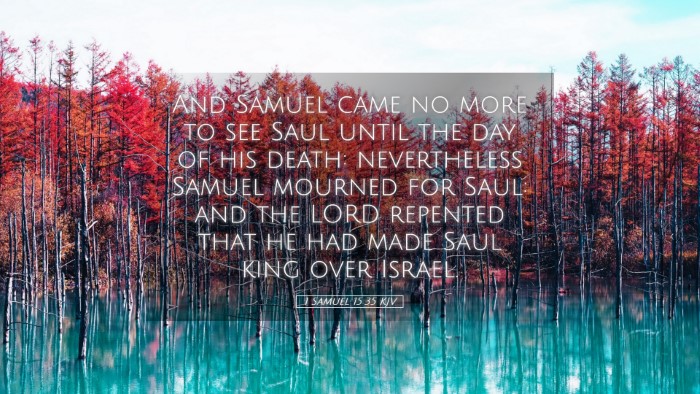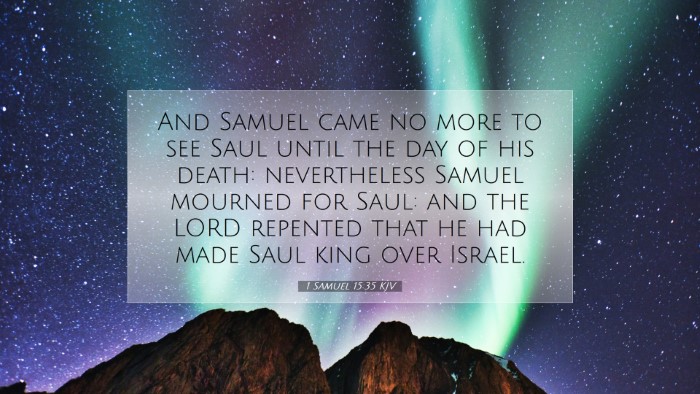Commentary on 1 Samuel 15:35
Verse Context: 1 Samuel 15:35 states, “And Samuel came no more to see Saul until the day of his death: nevertheless Samuel mourned for Saul: and the LORD repented that he had made Saul king over Israel.” This verse concludes the narrative arc of Saul’s rejection by God, marking a critical juncture in Israel’s history.
Interpretation Overview
This verse encapsulates the emotional and divine response to Saul's disobedience. It reflects the depth of Samuel's sorrow and the irrevocable nature of Saul's fall from grace. The term "repented" concerning the LORD's decision about Saul requires careful theological consideration, as it speaks to the dynamics of divine sovereignty and human volition.
Insights from Matthew Henry
Matthew Henry emphasizes Samuel's deep emotional investment in Saul’s kingship. He notes that although Saul was rejected, Samuel retained a compassionate heart towards him, mourning for his failure. Henry indicates that God’s “repentance” reflects His sorrow over the consequences of Saul’s actions rather than an actual change of mind. This illustrates a profound truth: God’s decisions, while sovereign, are intricately tied to human behavior and its aftermath.
- The Nature of Prophetic Mourning: Henry explains that Samuel’s mourning signifies the weighty impact of leadership failures. It communicates a lesson about the responsibility that comes with authority.
- God’s Regret: The use of "repent" is portrayed as God's sorrow over Saul's unfaithfulness, reinforcing the notion that God’s intentions were always for the good of Israel.
Insights from Albert Barnes
Albert Barnes highlights the finality of Saul’s rejection as an essential theme in this verse. He interprets Samuel's actions as indicative of the deep relational rupture brought about by sin. Barnes points out that God’s decision to reject Saul was profound, not only personally for Saul but also nationally for Israel.
- The Role of the Prophet: Barnes elaborates on Samuel's role as a spiritual leader who bears the weight of divine judgment. His mourning illustrates the personal toll of disobedience in spiritual leadership.
- Divine Sovereignty: The tension between God's sovereignty and human agency is central to Barnes' commentary. He underscores that God knows all events in advance and yet weeps over the consequences of human sin.
Insights from Adam Clarke
Adam Clarke offers a detailed examination of the term “repented,” suggesting that a better understanding lies in the recognition that it symbolizes God's sorrow rather than a literal change in mind. Clarke affirms that God’s original purpose was good, but human disobedience altered the course of Saul’s life and leadership.
- Theological Implications: Clarke addresses the philosophical questions raised by God’s “repentance,” suggesting that it could be viewed through the lens of God’s unchanging nature responding to human involvement.
- Saul’s Downfall: His commentary elucidates the tragic elements of Saul's life, marking it as a warning for leaders who stray from God’s commands.
Application for Pastors and Theologians
The implications of this verse extend beyond historical narrative to contemporary pastoral practice. It serves as a reminder of the profound relational dimensions of leadership and the emotional weight borne by those who lead.
- Leadership Accountability: This passage nuances the understanding of accountability in leadership, emphasizing that leaders' actions reverberate through their communities.
- Heart of God: It reveals the heart of God, who desires faithfulness from leaders, expressing sorrow over their failures rather than delight in punitive measures.
- Mourning with Those in Leadership: Pastors may find in Samuel’s mourning a model for engaging with the grief inherent in leadership transitions and failures.
Theological Reflections
This verse invites rich theological reflection on the nature of God's sovereignty, repentance, and the human condition. It challenges readers to grapple with the complexities of divine plans amidst human frailty.
- Human Agency vs. Divine Sovereignty: The commentary by Henry, Barnes, and Clarke all push scholars to consider how human disobedience disrupts divine plans without negating God’s overarching sovereignty.
- God's Compassion: The mourning of Samuel reflects God’s compassion toward His people and highlights His desire for leaders to remain faithful to their call.
Conclusion
1 Samuel 15:35 encapsulates the tragic end of Saul’s reign and evokes crucial themes relevant to the church today. It serves as a poignant reminder of the weight of leadership responsibilities, the sorrow of divine disapproval, and ultimately, the loving heart of God who desires fidelity from His chosen leaders. As such, this verse stands as a beacon for pastors, scholars, and students desiring to understand the intricate dance of divine providence and human free will.


